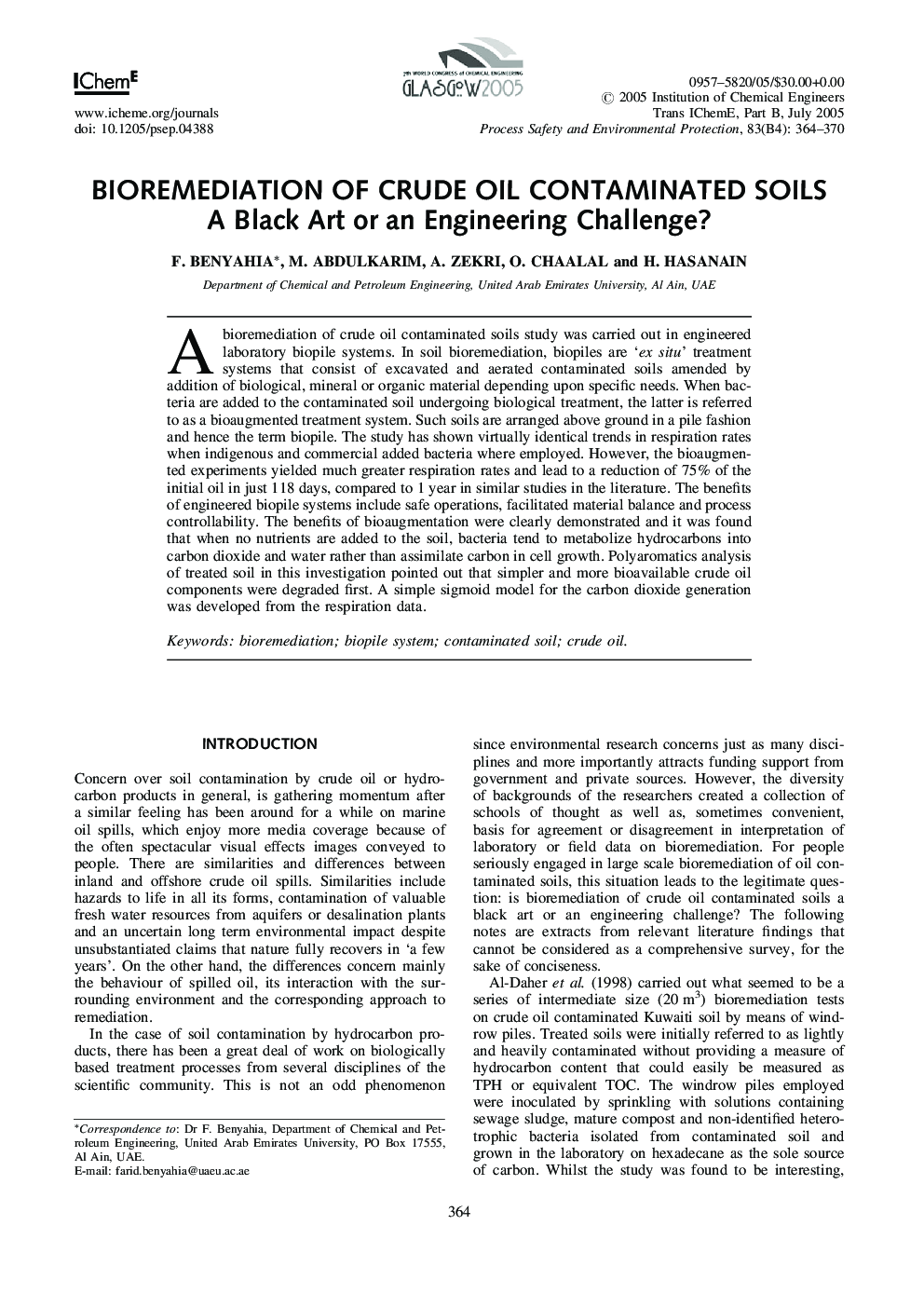| Article ID | Journal | Published Year | Pages | File Type |
|---|---|---|---|---|
| 10374136 | Process Safety and Environmental Protection | 2005 | 7 Pages |
Abstract
A bioremediation of crude oil contaminated soils study was carried out in engineered laboratory biopile systems. In soil bioremediation, biopiles are 'ex situ' treatment systems that consist of excavated and aerated contaminated soils amended by addition of biological, mineral or organic material depending upon specific needs. When bacteria are added to the contaminated soil undergoing biological treatment, the latter is referred to as a bioaugmented treatment system. Such soils are arranged above ground in a pile fashion and hence the term biopile. The study has shown virtually identical trends in respiration rates when indigenous and commercial added bacteria where employed. However, the bioaugmented experiments yielded much greater respiration rates and lead to a reduction of 75% of the initial oil in just 118 days, compared to 1 year in similar studies in the literature. The benefits of engineered biopile systems include safe operations, facilitated material balance and process controllability. The benefits of bioaugmentation were clearly demonstrated and it was found that when no nutrients are added to the soil, bacteria tend to metabolize hydrocarbons into carbon dioxide and water rather than assimilate carbon in cell growth. Polyaromatics analysis of treated soil in this investigation pointed out that simpler and more bioavailable crude oil components were degraded first. A simple sigmoid model for the carbon dioxide generation was developed from the respiration data.
Related Topics
Physical Sciences and Engineering
Chemical Engineering
Chemical Health and Safety
Authors
F. Benyahia, M. Abdulkarim, A. Zekri, O. Chaalal, H. Hasanain,
